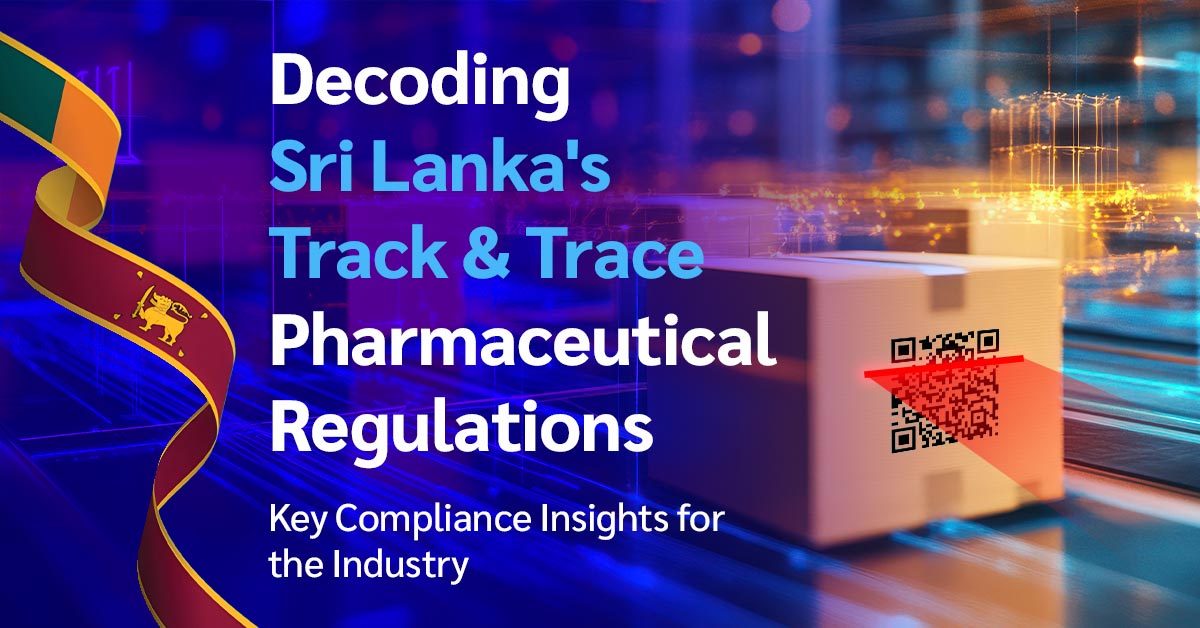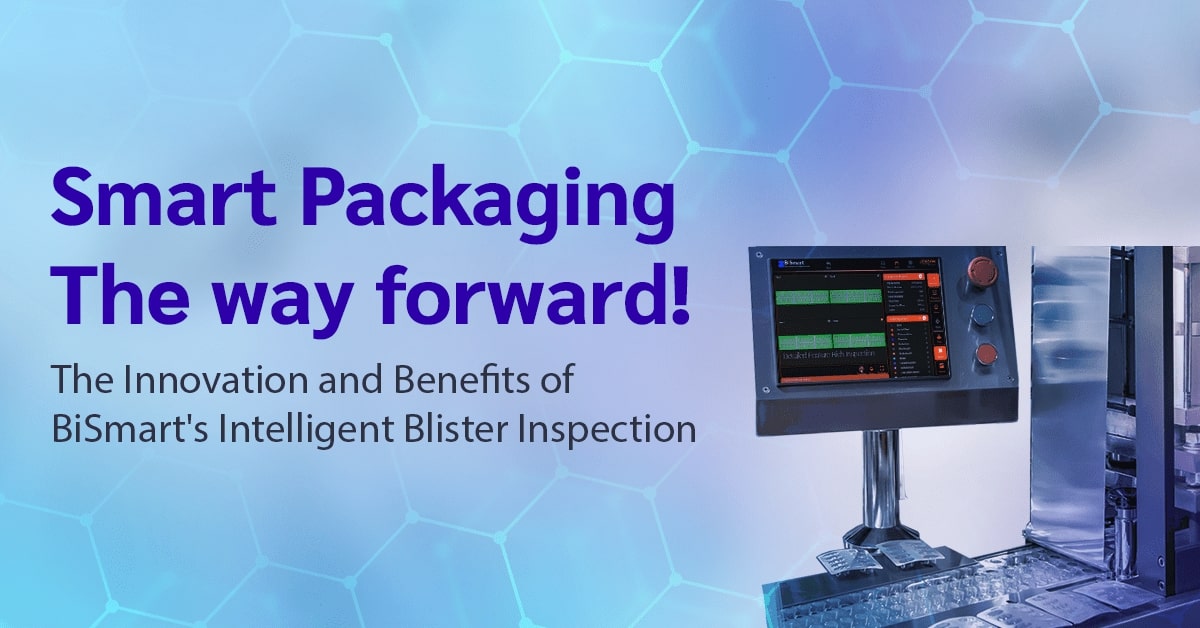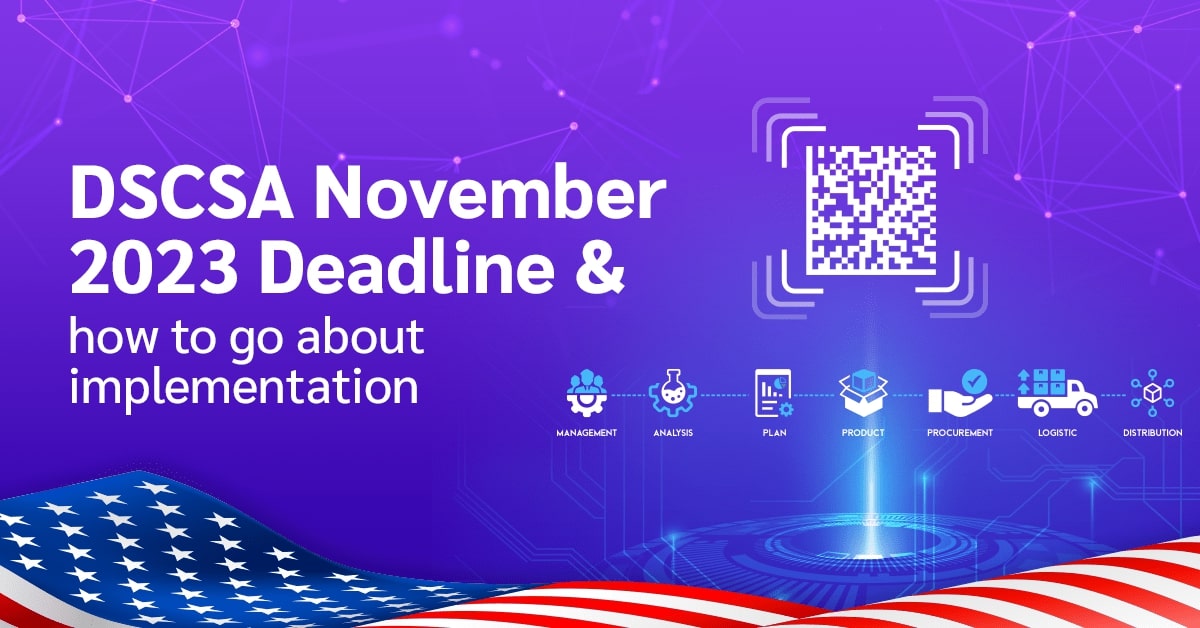The National Medicines Regulatory Authority (NMRA) of Sri Lanka, established in 2015, is an independent authority in the Ministry of Health that ensures that medicinal products meet safety, quality, and efficacy standards. It regulates medicines, medical devices, borderline products, clinical trials, and cosmetics. The NMRA is governed by a board that provides strategic leadership and advises on the authority’s functioning.
The National Medicines Regulatory Authority’s Board regulates labeling requirements for healthcare products to strengthen safeguards against falsified products entering the market.
The draft “Notice”, published on 15.07.2024 and amended on 13.08.2024, envisions two changes to the labelling requirements:
As per notification QR codes or 2D barcodes on the product’s labelling which are intended for logistics control are allowed. However, indication of website addresses is not allowed.
- Product-specific QR or bar code of the manufacturer encoding the following information (application three months after the first of September 2024):
- The product name
- The generic name and strength
- Batch number
- Date of manufacturer
- Date of expiry
- Name of the manufacturer and site address
- Stickers to be placed on each commercial pack indicating the wording “NMRA approved”, and the retail price (applicable from the first of October 2024)

The label is recommended to be implemented for all batches released to the market with effect from 1st November 2024.
The container of every medicine classified under Schedules II and III of the NMRA regulations shall be accompanied by a printed insert containing information drawn up in accordance with the summary of product characteristics. Every medicine specified in Schedule I or Group A of Schedule II of the NMRA regulations shall be accompanied by a patient information leaflet (a leaflet accompanied with the medicinal product containing specific information in lay language, for the patient). If the product is sold without a separate leaflet, the information that is required in the PIL must be stated on the outer carton or the primary label.Purpose of the NMRA guidelines:- Product Identification for product suppliers in market
- Avoid medication errors
- Achieve proper handling & storage of the product
- Traceability of the product in case of quality concerns
On draft notification – final authoritative instruction is under discussion with pharmaceutical stakeholders, post which final notification will be released as compliance guidelines.
Jekson on Sri Lanka regulations –
Reetrak (L3) is a track-and-trace solution, designed to fight counterfeit and unauthorized distribution of products. Reetrak seamlessly exchanges information between various IT systems and equipment involved in Serialization and Aggregation. Reetrak is essential for site-level activities and is therefore responsible for reporting data from plant level to enterprise level. High-tech technologies for serialization and aggregation, vision inspection solutions, and barcode verification are central to combating counterfeit, ensuring NMRA regulatory compliance.
ReeTrak from Jekson can assist Brand owners/Manufacturers to comply with regulations around the world, primarily supporting Industry standards & best practices.
ReeSource (L4) by Jekson is a comprehensive SaaS based solution which that enables all pharma supply chain stakeholders to comply with most of the world’s pharmaceutical regulations.
Key features of ReeSource in business operations –
- Product Serialization and Serial number repository
- EPCIS repository and EPCIS communication protocol
- End to End Supply Chain Visibility
- Cloud-based solution for warehousing
- Product authenticity (End Consumer visibility)
- User-friendly programs
NHMA expects the fullest corporation to implement these controls and help prevent falsified products from entering the market.
Resource – https://www.nmra.gov.lk/pages/guidelines







